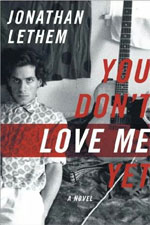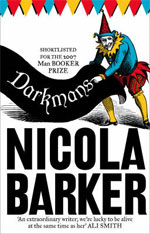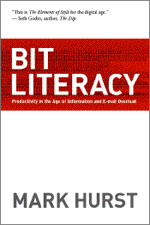Here’s what I read in 2009, with links to reviews where I have them. (Actually, I’ve commented at least a wee bit on most of what I read this year.)
-
Letting Go of the Words
by Janice (Ginny) Redish -
The Scream
by Rohinton Mistry -
Great Expectations
by Charles Dickens -
Catching the Big Fish
Meditation, Consciousness and Creativity
by David Lynch -
Soucouyant
by David Chariandy -
The Importance of Music to Girls
by Lavinia Greenlaw -
Old City Hall
by Robert Rotenberg -
The Other End of the Leash
by Patricia B. McConnell -
Sideways
by Rex Pickett -
28 Stories of AIDS in Africa
by Stephanie Nolen -
Northanger Abbey
by Jane Austen -
Master of Reality
by John Darnielle -
Crabwise to the Hounds
by Jeramy Dodds -
Margaret Lives in the Basement
by Michelle Berry -
Revolver
by Kevin Connolly -
Pride and Prejudice and Zombies
by Jane Austen and Seth Grahame-Smith -
Rising, Falling, Hovering
by CD Wright -
The Book of Negroes
by Lawrence Hill -
The Family Man
by Elinor Lipman -
Primitive Mentor
by Dean Young -
In the Land of Long Fingernails
A Gravedigger’s Memoir
by Charles Wilkins -
The Sentinel
by AF Moritz -
What the Body Remembers
by Shauna Singh Baldwin -
The Dog That Pitched a No-Hitter
by Matt Christopher -
go-go dancing for Elvis
by Leslie Greentree -
The Complete Winnie-the-Pooh
by AA Milne -
Extremely Loud & Incredibly Close
by Jonathan Safran Foer -
Middlemarch
by George Eliot -
Brooklyn
by Colm Toibin -
The Dangerous Book for Dogs
by Rex & Sparky -
The Winter Vault
by Anne Michaels -
Stripmalling
by Jon Paul Fiorentino -
The Cure for Death by Lightning
by Gail Anderson Dargatz -
Then We Came to the End
by Joshua Ferris -
Blackouts
by Craig Boyko -
Homesick
by Guy Vanderhaeghe -
The Cellist of Sarajevo
by Steven Galloway -
Solomon Gursky Was Here
by Mordecai Richler -
The Incident Report
by Martha Baillie -
A Bend in the River
by VS Naipaul -
This Shape We’re In
by Jonathan Lethem -
The Grandmothers
by Doris Lessing -
Frozen in Time
Unlocking the Secrets of the Franklin Expedition
by Owen Beattie and John Geiger -
The Guernsey Literary and Potato Peel Pie Society
by Mary Ann Shaffer and Annie Barrows -
A Gate at the Stairs
by Lorrie Moore -
Paper Radio
by Damian Rogers -
Negotiating With the Dead
A Writer on Writing
by Margaret Atwood -
The Disappeared
by Kim Echlin -
February
by Lisa Moore -
You Don’t Love Me Yet
by Jonathan Lethem -
The Journals of Susanna Moodie
by Margaret Atwood and Charles Pachter -
The Red Shoes: Margaret Atwood Starting Out
by Rosemary Sullivan










